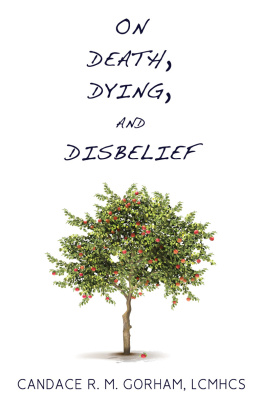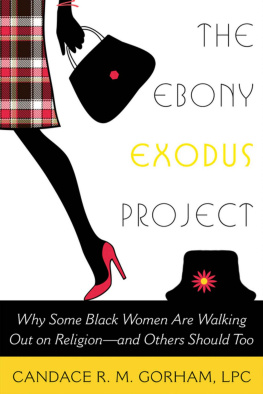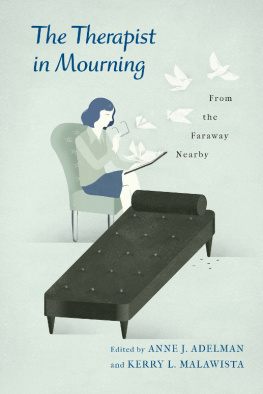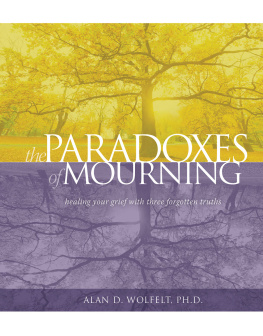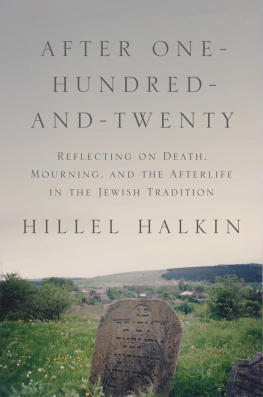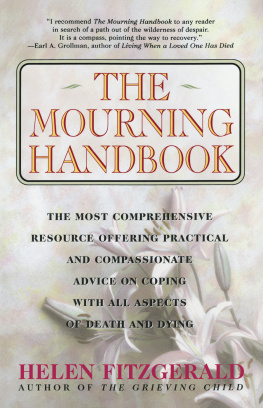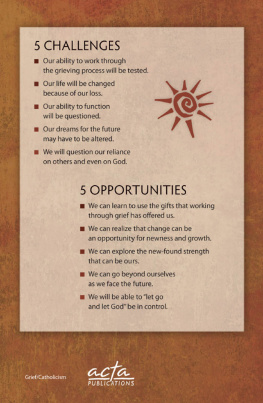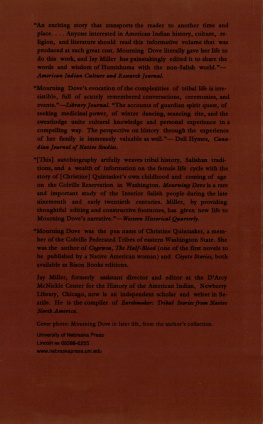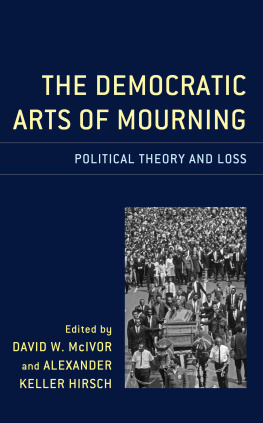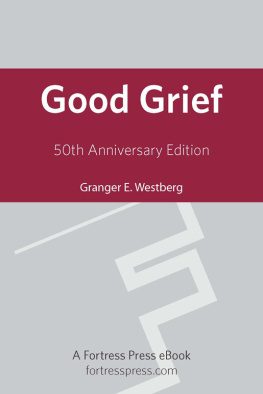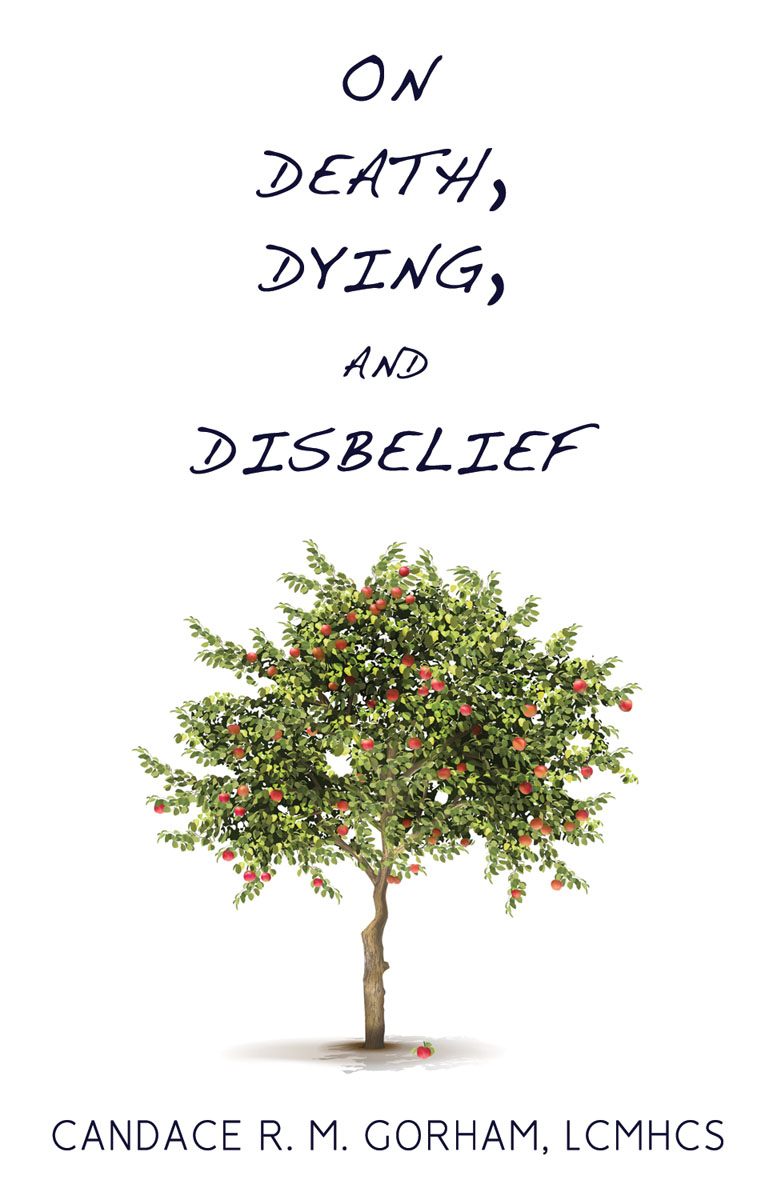

Pitchstone Publishing
Durham, North Carolina
www.pitchstonebooks.com
Copyright 2021 Candace R. M. Gorham, LCMHCS
All rights reserved.
Printed in the USA
First edition
10 9 8 7 6 5 4 3 2 1
Library of Congress Cataloging-in-Publication Data
Names: Gorham, Candace R. M., author.
Title: On death, dying, and disbelief / Candace R. M. Gorham, LCMHCS.
Description: Durham, North Carolina : Pitchstone Publishing, [2021] | Includes bibliographical references. | Summary: Offers advice to those who are grieving the loss of a loved one but who do not believe in a God or afterlife Provided by publisher.
Identifiers: LCCN 2021028122 (print) | LCCN 2021028123 (ebook) | ISBN 9781634312158 (paperback) | ISBN 9781634312165 (ebook)
Subjects: LCSH: Grief. | Death. | Atheism. | EmotionsPsychological aspects.
Classification: LCC BF575.G7 G6864 2021 (print) | LCC BF575.G7 (ebook) | DDC 155.9/37dc23
LC record available at https://lccn.loc.gov/2021028122
LC ebook record available at https://lccn.loc.gov/2021028123
To The Boy Who Called Me By My Full Name: What I wouldnt give to hear you say it one more time.
Contents

Preface

Ive always been a heavy griever. My first memory of grieving is leaving my paternal grandfathers funeral when I was six years old. My father was driving our maroon Buick Skylark, crawling slowly along the gravel parking lot of the church and carrying me away from my grandfather, the grandfather who would bounce me on his knee and make me laugh with silly faces. I was sitting on my knees looking out of the back window, sobbing loudly, watching the cemetery get smaller and smaller. My mother was pulling at my dress to get me to turn around; my brother and sister were statues to my left and right. My father told my mother, Leave her alone. Let her cry. And then she did. She left me there. They all left me there, next to the hot back window, turned around with my arms outstretched on the seats ridge, sobbing as I came to the realization that Granddaddy wouldnt be coming back to The House.
I dont remember ever seeing any of my family members grieveat least not like me. I remember seeing my sister cry briefly once when one of our dogs got hit by a car. I also remember crying so deeply as I watched my father bury that dog in the backyard that my mother made me come in the house. I believe I saw my sister and my mother cry a few times, though I dont recall why and I dont remember ever seeing my father cry. I think I saw my brother cry once, but Im not sure. The point is, Im clearly the heaviest griever in my familyat least when measured by affect. I think they would all agree that, in our family, I am the one who openly expresses emotions the most. They would probably also say that I am the most emotional in generala drama queen, they might even say, but thats a different discussion.
I know, everyone grieves in their own way. But this concept doesnt stop us from trying to figure how to grieve. Everyone grieves in their own way and Theres no time limit on grief are the two most common sentiments that people express in an effort to comfort those in mourning. Despite this ubiquitous wisdom, those in mourning rarely find comfort in such assurances. The people expressing these sentiments rarely find much comfort in them either. The advice is vague and does little to alleviate their sense of helplessness. Thats why, despite the simplicity of these two concepts, there is a massive industry for helping people who have recently lost someone. One can now swim in a pool of books, workbooks, workshops, self-help groups, support groups, retreats, and psychotherapy, that all tell people how to grieve.
As a mental health professional, Im in quite a quandary when someone comes to me, personally or professionally, for advice about grieving. While I agree with the premises that everyone grieves in their own way and there is no time limit on grief, I also deeply understand the quest for relief. I never tell anyone how to grieve, but the truth of the matter is that there are things that can make the grieving process better. There are things that are important to pay attention to when in mourning. There are ways in which others can help. The problem is that grief blinds the mourner with dark, heavy clouds of blackness and blankets them in weighted shrouds of nothingness. Sometimes they need others to see for them. Sometimes they need others to feel for them. Sometimes they need others to think for them. Sometimes they just need others. And that is why the grief support industry thrives. What is lacking from that industry, however, is support for grieving nontheists. Nontheists are starved for support of a nonreligious or nonspiritual nature. They are looking for practical advice, just like everyone else, but they also need a special kind of support that makes room for their own particular existential struggle.
I chose to write this book for a number of reasons. First, whenever I attend an atheist or humanist event, people often ask me about grief and mourning. They want to know whether I think its okay for an atheist to go to a church funeral. They express their confusion at why some nonbelievers turn to god after a loved one dies. They ask for advice on how to support a grieving Christian even though they dont believe in the afterlife. Sometimes I have a response. Sometimes I dont. I would love to have a response to all such questions.
Another reason that I decided to write this book is that, as of this writing, we are in the midst of an enormous, terrifying, deadly pandemic. It has led to hundreds of millions of infections and millions of deaths. I want nontheists to have something to help them as the devastating effects of COVID-19 will ripple for years to come.
And finally, I saw the book as a way to work through my own grief. This is the glue that holds the whole project together and connected me to the writing process. My high school sweetheart died on June 16, 2019, from injuries sustained in a car crash more than two weeks earlier. His name is Tim. I met Tim in the spring of 1996, and my fifteen-year-old heart was crushing immediately. By the time he asked me to be his girlfriend that summer, I was speechless with excitement that he had chosen me. (I was young. Forgive me.) By Christmas, when he first told me he loved me, I knew Id love him for the rest of my life.
I know this experience occurred a long time ago and reflecting through grieving eyes makes things look different, but I truly believe that we had a wonderful relationship. I believe that I was incredibly lucky to have had the kind of relationship that I had at such a young age. We were together two and a half years, but ultimately, differences over religion led to our break up. Then, after I graduated high school, I left my hometown and moved an hour away to college. It broke every piece of my heartand I would later find out his, tooto leave him behind, and I cried incessantly for months afterward. I knew that, aside from that one issue, there was nothing else that kept us apart. Life moved on, and I met the man who would become my best friend and husband of fourteen years.
I was lucky to have had an amazing marriage with a wonderful man and father to my daughter. However, throughout our marriage, I never stopped wondering about Tim.
Next page
